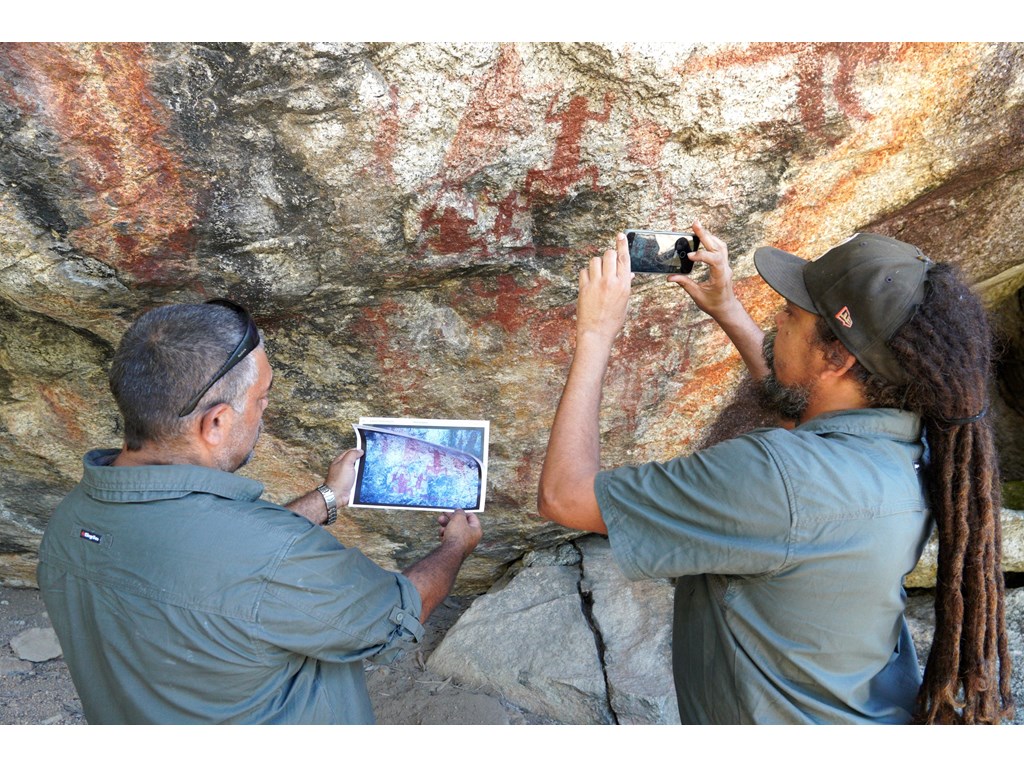
- Grants of up $75,000 are available to support First Nations communities to deliver projects promoting the health of Country and connection to Culture through the Miles Government's Looking After Country grants program.
- This year's NAIDOC Week theme, 'Blak, loud and proud: Keep the Fire Burning!' symbolises First Nations communities' enduring connection to Country and Culture and celebrates the rich and diverse cultures of Aboriginal and Torres Strait Islander Peoples.
As Queensland celebrates NAIDOC Week 2024, the Miles Government is encouraging First Nations community organisations to apply for a share of $500,000 for projects that help care for Country and keep culture strong.
Grants of up to $75,000 will be available through the latest round of the government's Looking After Country grants program.
Projects funded under the program have helped communities to care for Country and for Elders to pass important knowledge on to younger generations. Successful past projects included cultural fire techniques to reduce vegetation density and restore healthy ecosystems, and cultural camps to document and protect cultural sites such as ancient rock-art.
This year's round of grants is on offer for Indigenous Corporations, Aboriginal and Torres Strait Islander Councils, and other non-profit organisations with majority First Nations boards.
Recent Looking after Country projects include:
- Watsonville Aboriginal Corporation received a grant of $75,000 to support Junior Traditional Custodians on Mbabaram Country where Elders taught young people about plant identification and the use of cultural fire to look after Country.
- Badjuballa Aboriginal Corporation received a grant of $75,000 to care for the culturally-significant Badjuballa Station in Kirrama Range and reconnect Elders and their young people with culturally significant sites on Country.
- Wangkangurru Yarluyandi Aboriginal Corporation received a grant of $75,000 for their project Wangkangurru Yarluyandi cultural heritage management and protection of the 'Big Red' sand dune.
NAIDOC Week is a great opportunity for everyone to acknowledge the culture and achievements of First Nations peoples.
By honouring the flame, we can acknowledge, preserve and share in Indigenous heritage, traditions and the achievements of the oldest living cultures in the world.
As stated by the Minister for the Environment and the Great Barrier Reef, Leanne Linard:
"NAIDOC Week recognises the connection to Country that First Nations peoples have had with this continent for more than 65,000 years.
"We still have much to learn from the culture and connection to Country of Aboriginal and Torres Strait Islanders.
"They were our first explorers, navigators, engineers, farmers, botanists, scientists, diplomats, astronomers and artists.
"The theme for NAIDOC Week 2024 is 'Blak, loud and proud – Keep the Fire Burning!'
"First Nations communities can enhance their connection to Country through the latest round of Looking after Country grants, which help create jobs, training, and skills development for First Nations communities.
"On-Country projects could include cultural site surveys and restoration, species monitoring and conservation, fire management including cultural burns and water quality measures."
As stated by Badjubulla Aboriginal Corporation chairperson, Chris Kennedy:
"Our project is titled The Cyclone Story.
"The grant allowed Girramay people to revisit these sites and plan for their future management.
"We are undertaking surveys, mapping, fencing and revegetation to protect and conserve these important cultural and story sites for the future."
As stated by Watsonville Aboriginal Corporation chairperson, Gerry Turpin:
"This funding allowed knowledge-sharing workshops to be held where Elders taught young people about plant identification and the use of cultural fire to look after Country.
"The project in the Tablelands community of Watsonville will involve working in partnership with Firesticks, and the Rural Fire Brigade to pilot the use of cultural fire in an area which will increase the skills of young Mbabaram people in using this approach to managing Country."






